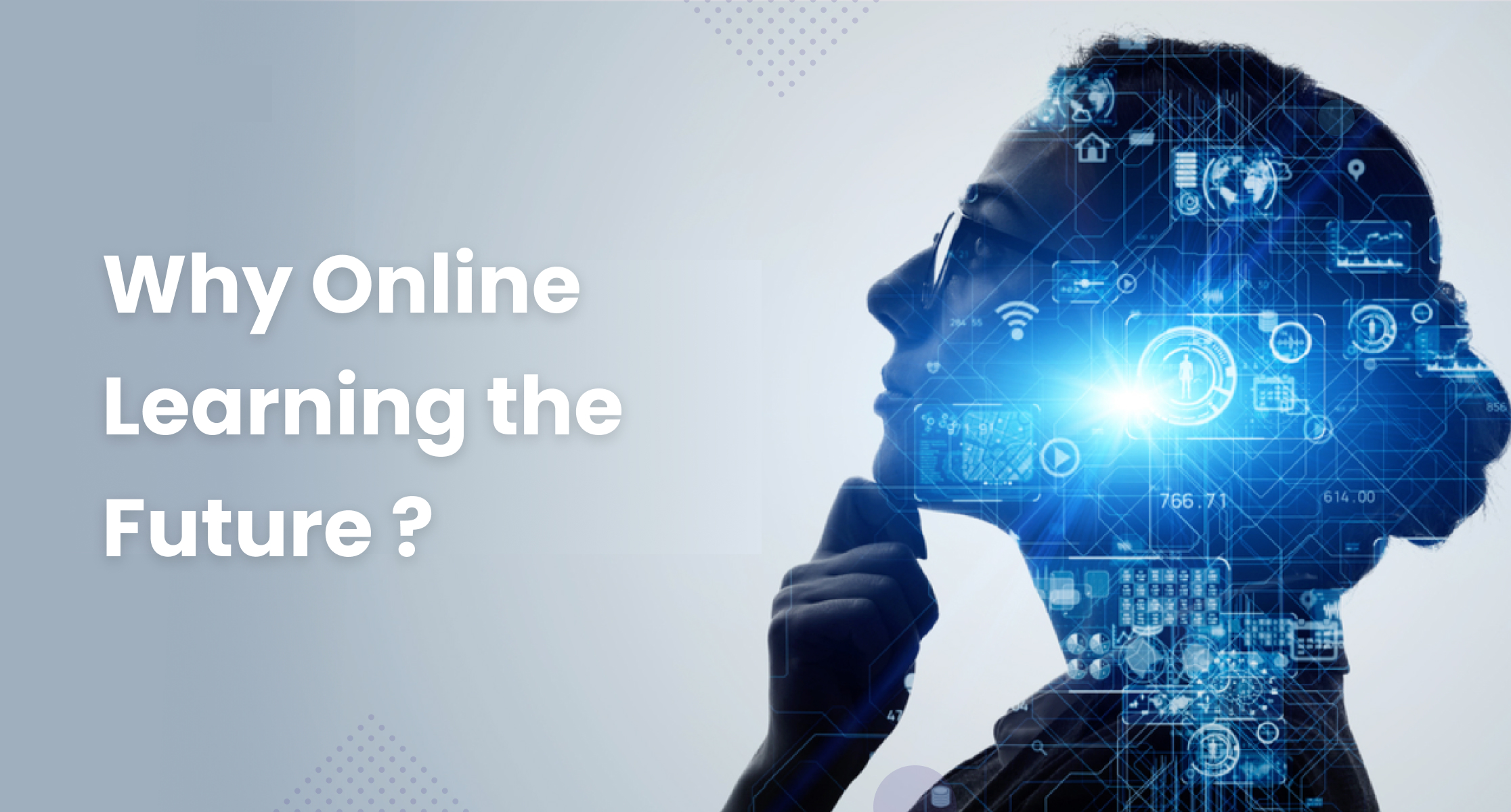7 June 2024
Published by

Online learning has revolutionised the way we acquire knowledge and skills, shaping the future of education in profound ways.
As technology advances and the world becomes increasingly interconnected, the traditional brick-and-mortar model of education is evolving to embrace the dynamic landscape of online learning.
In the quiet town of Learnsworth, nestled between the rolling hills of Knowledge Valley and the bustling city of Progressburg, something extraordinary was happening.
A revolution was silently sweeping through the quaint streets, and it went by the name of online learning. As the sun set over the town, casting a warm glow on the cobblestone paths, the residents of Learnsworth gathered around their digital devices, eagerly immersing themselves in the virtual classrooms that had become the heartbeat of their educational journey.
This article explores the reasons behind the growing momentum of online learning and its inevitable place as the future of education.

Flexibility and Convenience
One of the primary attractions of online learning is its flexibility. Learners can tailor their study schedules to fit around work, family, or other commitments.
Cost-Effectiveness
Online learning often proves to be more cost-effective than traditional education. There are no commuting expenses, and course materials are frequently available online for free. Additionally, the elimination of physical classrooms and associated overheads can result in lower tuition fees.
Access to a Variety of Courses
Online learning provides a wide range of courses covering various topics. Whether you’re interested in coding, literature, or business management, there’s an online course tailored to your needs. This democratisation of education provides opportunities for personal and professional growth.
Self-Paced Learning
Online learning allows students to progress through material at their own pace. It empowers learners to take control of their educational journey.

Virtual Reality in Education
The integration of virtual reality (VR) in online education brings an immersive dimension to learning. Students can explore virtual environments, conduct experiments, and engage in simulations, providing a hands-on experience that transcends traditional classroom limitations.
AI-Driven Personalized Learning
Artificial intelligence (AI) algorithms analyse a student’s performance and tailor the learning experience accordingly. Personalised learning paths, adaptive assessments, and targeted feedback contribute to a more effective and efficient learning process.
Interactive Content
Advancements in technology have enriched online courses with interactive content. From multimedia presentations to gamified quizzes, these engaging elements enhance the learning experience. Interactive content promotes active participation, making learning more enjoyable and effective

Lack of Face-to-Face Interaction
One common criticism of online learning is the absence of face-to-face interaction. However, various communication tools, such as video conferencing and discussion forums, bridge this gap.
Overcoming Technological Barriers
Not everyone has equal access to technology. To address this, initiatives providing affordable devices and internet connectivity are essential. Additionally, designing courses with user-friendly interfaces ensures that learners, regardless of their technological proficiency, can navigate the online learning environment.
Ensuring Academic Integrity
Maintaining academic integrity in online assessments is a challenge. Implementing secure online proctoring and plagiarism detection tools helps uphold the credibility of online degrees.
Breaking Geographical Barriers
Online learning transcends geographical boundaries, enabling individuals from diverse locations to access quality education. This global reach contributes to a more interconnected and knowledgeable society.
Making Education Accessible to All
Online education removes barriers to education, making it accessible to those who may face challenges in attending traditional institutions. This inclusivity is a transformative force in ensuring equal educational opportunities for everyone.
Catering to Diverse Learning Styles
People learn in different ways, and online education accommodates various learning styles. Visual learners can benefit from multimedia presentations, while interactive discussions cater to auditory learners.
Soft Skills Enhancement
Online learning goes beyond imparting academic knowledge; it cultivates soft skills like time management, self-discipline, and digital literacy. These skills are invaluable in the modern workforce.
Practical Application of Knowledge
Many online courses emphasise practical, real-world applications of knowledge. Learners gain hands-on experience, ensuring they can apply their acquired skills directly in their professions.
Job Market Relevance
Employers now view online education as a credible pathway to skill development. Online certifications and degrees are increasingly sought after, demonstrating a candidate’s commitment to continuous learning and adaptability.
Demand for Online Certifications
The job market is evolving, and employers are placing a premium on candidates with relevant online certifications.
Online learning has not only revolutionized education but has become the driving force shaping its future. The flexibility, technological innovations, and inclusivity of online education make it a transformative tool for individuals and society at large.